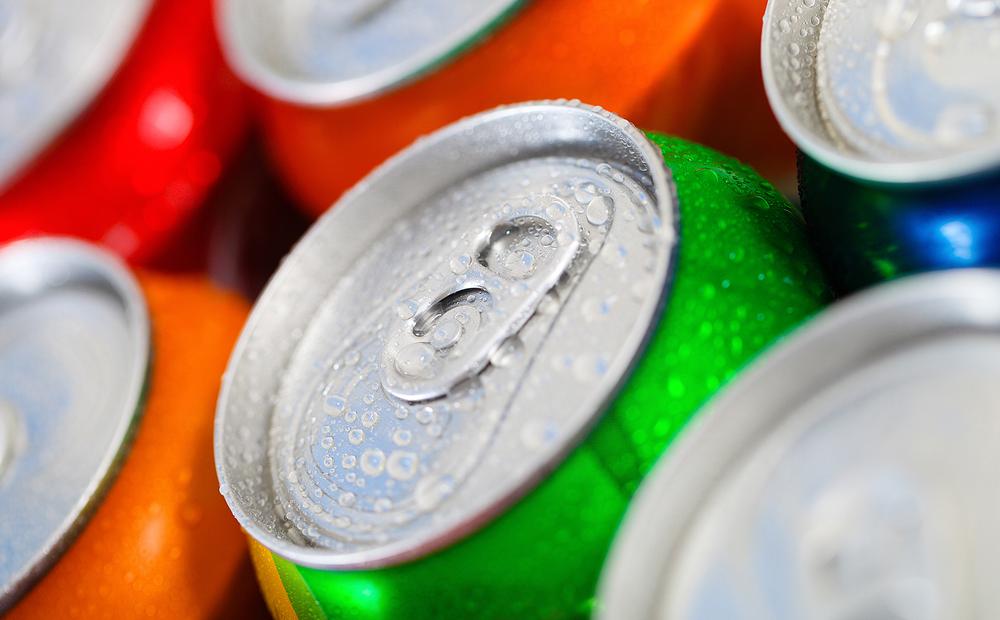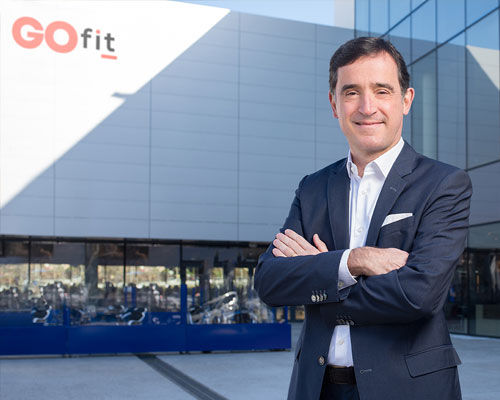features
Sweet truth
A spoonful is said to help the medicine go down – but according to a growing body of research, sugar may in fact be the key culprit behind the current global epidemic of obesity and chronic disease
Sugar. Whether you add it to your tea, sprinkle it on your cereal or devour it in desserts, there are few of us who can entirely resist it. We know it’s not good for our teeth or our waistlines, but it tastes so nice that we tell ourselves it can’t really do us much harm – after all, it’s not as high in calories or as likely to clog our arteries as fat, is it?
Last month, headline news in the UK labelled ‘sugar as the new tobacco’ as supermarkets were urged to cut the amount of sugar they use. But this isn’t the first time sugar has received bad press. In February 2012, three American scientists led by Robert Lustig, a top endocrinologist and professor of clinical paediatrics at the University of California, published an article in the journal Nature, blaming sugar not only for the global obesity epidemic but also for a whole host of non-communicable chronic diseases. He compared its effects to those of alcohol, and called for governments to regulate sugar-rich products through measures such as taxation, sales restrictions and age limits.
Indeed, an increasing number of leading scientists on both sides of the Atlantic are concurring on this one fact: beyond merely adding calories, sugar is also a toxin that is seriously damaging our health.
But what’s all this got to do with health-focused business such as spas and fitness clubs? According to Phillip Mills – CEO of fitness firm Les Mills International (see SB08/3 p100) and author of Fighting Globesity – the answer is: absolutely everything. He feels gyms, spas and other wellness-focused facilities are well-placed to help tackle the problem. “If we really want to provide a solution to the terrible health crisis, we have to take on the food side of things – we can’t just be places where people come to run on a treadmill,” he says. “Tackling this issue is both a responsibility and an opportunity.”
The case against sugar
So should sugar really be the primary target in the fight against obesity and chronic disease? And if so, why? The most obvious argument is one few people would challenge: it’s high in calories and has little nutritional value. “I think it’s hard to mount a specific case against sugar except in so far as it contributes to obesity,” says Dr Susan Jebb, head of diet and population health at the Medical Research Council (MRC) Human Nutrition Research unit in Cambridge, UK. “But in a country where two-thirds of adults are overweight or obese, we need to eat fewer calories while maintaining our intake of essential micronutrients. That inevitably implies cutting back on those items which add calories but few micronutrients – and this puts sugary products high on the list of targets.”
Lustig’s case against sugar, however, is built on far more than the ‘empty calories’ argument. To quote the Nature article: “A growing body of scientific evidence is showing that fructose [a sugar molecule found in sweeteners added during food processing] can trigger processes that lead to liver toxicity and a host of other chronic diseases. A little is not a problem, but a lot kills – slowly.”
Fructose in itself is not inherently unhealthy. It is, in fact, commonly found in fruit where, surrounded by fibre, it digests slowly and helps keep blood sugar stable. The problem lies with the fructose in the refined sugars so liberally used by today’s big food manufacturers, not only in cakes, chocolate and soft drinks, but also in staples such as bread and breakfast cereal to cheese and sausages – including, ironically, many low-fat items marketed as health foods.
In the US, the number one sugar additive is a mass-developed product which is called high fructose corn syrup (HFCS), while in the UK and most other developed countries, sucrose extracted from sugar cane or sugar beet is the additive of choice. But what both have in common is a high level of fructose (55 per cent in HFCS and 50 per cent in sucrose) and a ubiquity of which most of us are blissfully unaware.
Lustig and co’s concern with fructose is not its calorie content, but the way it is metabolised within the body. Unlike glucose, fructose is metabolised almost entirely by the liver, where it is converted into glucose and other sources of energy. However, studies have shown that when fructose is consumed in large quantities, our liver struggles to cope, leading to many of the problems associated with metabolic syndrome: hypertension, inflammation, build-up of abdominal fat, abnormal fat levels in the blood, insulin resistance, and glucose intolerance. Left unchecked, it all points in one direction: chronic disease, ranging from non-alcoholic fatty liver disease and type 2 diabetes to heart disease and stroke.
Nor does the case against sugar end there. Many experts point to the sweet stuff’s addictive qualities, which some studies have shown to be similar to those of nicotine and heroin. Researchers at the National Institute for Physiological Sciences in Japan, for example, found that when mice anticipate a sugary treat, their brains release a chemical called orexin. This triggers the body to use up any sugar already in the bloodstream to pave the way for the expected influx. But if the sugar is not forthcoming, energy levels dip and powerful cravings follow.
Lustig and his allies also highlight the effect of sugar on appetite controls. In short, they argue that the negative impact of too much fructose on our body’s insulin-producing mechanisms interferes with both production of the hormone leptin, which tells us when we’re full, and suppression of the hormone ghrelin, which tells us when we’re hungry. The end result? We can’t stop eating.
A strategic response
Stacked up like this, the arguments for targeting added sugar in the battle against obesity and chronic disease certainly seem compelling. But what, if anything, can we do about it?
Jebb remains unconvinced that sugar should be singled out for attention. “Obesity is caused by eating more calories than you need: you can’t generalise and say it’s caused by one type of calories more than another,” she says. “Plus other conditions sometimes attributed to sugar, such as diabetes, are a consequence of obesity.” She is, however, very much in favour of reducing the population’s overall calorie intake, to which sugar is a major contributor – and, as chair of the Food Network of the government’s Public Health Responsibility Deal, she believes that working with, rather than against, the big food companies is the best way to achieve this.
Set up a couple of years ago, the Responsibility Deal is a UK Department of Health initiative aimed at encouraging businesses and other organisations to improve public health by taking action on food, alcohol, physical activity and health in the workplace, through both their actions as employers and their commercial and community activities. To become partners, food manufacturers must sign up to at least one of a number of pledges. These range from clearer calorie-labelling, to helping to reduce overall calorie intake through steps such as product/menu reformulation, reviewing portion sizes, education and shifting their marketing focus to lower-calorie options. Companies signed up to date include big names such as Coca-Cola, Mars, Nestlé and Subway, all of which have made specific commitments to cut and cap calories across a range of products.
Dave Stalker, the CEO of fitness body ukactive, feels that the fitness and food industries can work more closely together. To improve their overall health profile food manufactures could offer health club passes and promotions on their packaging, for example.
Not everyone is convinced that collaborating with the food industry can work, however. In the Nature article, Lustig and his colleagues shun such ideas in favour of legislative controls that curb the availability of sugar in the same way as tobacco and alcohol. Their proposals include tightening licensing requirements on vending machines and snack bars in schools and workplaces; introducing zoning ordinances to limit the number of fast-food outlets and stores in low-income communities and around schools; restricting sales of sugary products during school hours; setting a lower age limit of 17 on the purchase of such products; banning TV advertising of such products to children; and introducing a ‘sugar tax’ on all foods containing added sugar.
In the US, there have been numerous attempts to introduce these kinds of measures though almost all have come to nothing when faced with the vast lobbying power of ‘Big Food’. In early 2012, however, anti-sugar advocates in the US gained a small but significant victory when New York’s mayor Michael Bloomberg successfully introduced a ban on the sale of super-sized soft drinks across the city. Meanwhile, in Europe, a soft drink tax approved by the French government is approaching its first birthday.
To tax or not to tax?
One of the thorniest issues in the debate is whether or not a sugar tax is a workable idea. Mills has no doubt it’s the only way forward. “If you look at tobacco, education programmes and smoking bans are great, but it’s tax that has made the difference,” he says. “Research shows that every 10 per cent increase in the price of cigarettes causes a 4 per cent drop in consumption.”
But unlike tobacco, sugar is found in staple items as well as junk food. And isn’t there a danger that the cost of such a tax will merely be passed onto the consumer? “There’s a lot of detail that needs to be looked at,” admits Mills, “such as whether you tax the core ingredient or tax it at a retail level, and what kind of levels you set in terms of sugar content – but it’s do-able,” he says.
However, not everyone accepts this argument. “The evidence for food taxes is limited,” says Jebb. “Most data comes from modelling studies, not actual experiments. These suggest that, if people behave in a totally rational way, then a tax would reduce intake, but with such complex behaviour as eating and with so many choices available, it’s by no means clear that the predicted effects would occur.”
Educating the influential
But whatever the approach at a national level, what can individual wellness, spa and fitness operators do about any of this? Ukactive’s Stalker believes one of the most important steps is to alert the public to the potential dangers of sugar is to focus more on education. This would require “upskilling professionals [staff] so they’re able to give good nutritional advice, as well as on physical activity”.
But can this kind of ‘nudging’ really make a difference when up against the Big Food? “We don’t have the marketing budget to compete,” admits Stalker. “But we’re getting a lot more press coverage encouraging people to make healthy lifestyle changes, and those people need somewhere they can go to get professional guidance – not just on how to do a press-up but also on how they can eat well.”
Mills adds: “It’s important to remember that we have some of society’s most affluent and influential people coming to our facilities too, and that’s a very important group to educate. If you educate these people, then you can also start to change society. They’ll not only be motivated to change their own behaviour but they can also help us to lobby government.”
If fitness and wellness facilities are to become a hub for advice, however, they’ll need to take a look at their own food and beverage offerings which can, ironically, sometimes include junk food and tempting ‘naughty desserts’ or sugar loaded supplements and sports drinks.
Talking it over
For the time being then, the debate over the perils of sugar looks set to continue. Evidence that sugar is indeed the single greatest contributor to chronic disease appears to be growing. Nevertheless, there’s not yet a consensus on this point in the international scientific and medical communities, with many experts arguing that the key to improving global health outcomes remains tackling obesity through the simple equation of calories in versus calories out. And while most health commentators agree that over-consumption of sugar is an issue, there appears to be just as much conflict about how to tackle the problem.
What is certain is that these questions are not going to go away and if the health and wellness industry wants to be taken seriously as a player in the modern health paradigm, it needs to be at the debating table. As Stalker says: “We can only become a priority sector by talking in the same language as the medical community and that includes becoming more knowledgeable about nutrition.”
Rhianon Howells is the Consulting Editor of Spa Business magazine
Email: [email protected]







































































